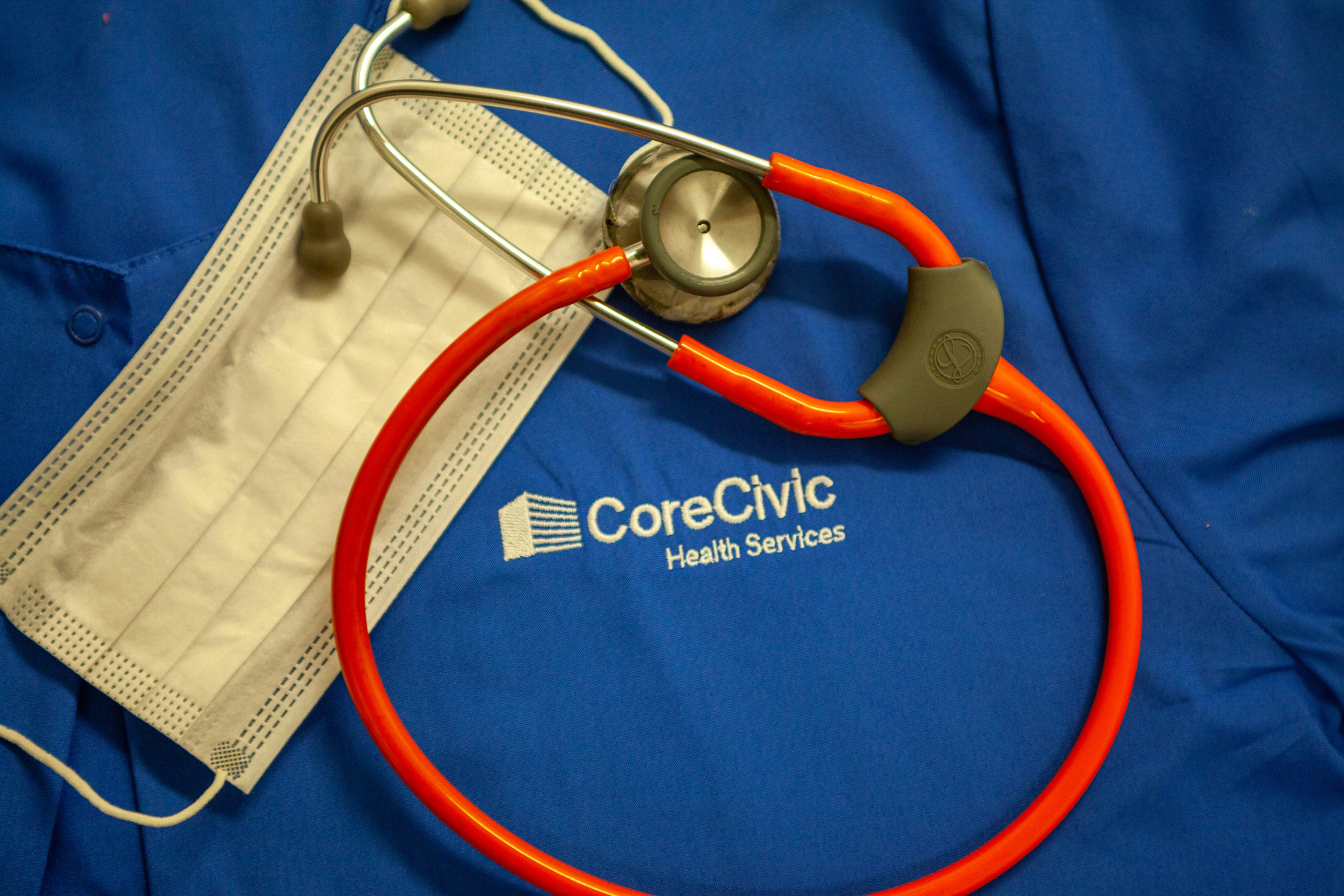
Having joined CoreCivic in 2023, Dr. Kristen Dauss, vice president and Chief Medical  Officer, leads CoreCivic's strategic management approach to medical and mental health services for those in our care. Through a Q and A column, Dr. Dauss discusses the compassionate and dignified health care offered by CoreCivic's Health Services team.
Officer, leads CoreCivic's strategic management approach to medical and mental health services for those in our care. Through a Q and A column, Dr. Dauss discusses the compassionate and dignified health care offered by CoreCivic's Health Services team.
Why did you decide to become a physician? I decided to become a physician in early childhood. My grandfather was a farmer and suffered unnecessary complications from diabetes, as he didn’t trust his health care providers. He didn’t feel heard or understood by his physicians, so I made a promise to him that I would become a doctor and take care of patients like him. As time went on, I learned and saw the impact of being underserved by the healthcare community, ultimately realizing the profound impact I could have on people’s lives through healthcare. I was drawn to the combination of science, problem-solving and the opportunity to make a difference in individuals’ well-being by quality health care delivery.
You bring a unique mix of clinical experience to the Chief Medical Officer (CMO) role. How does that impact your vision for CoreCivic’s health services? I am a triple board-trained physician, which means I completed residency in three areas: general pediatrics, general psychiatry and child and adolescent psychiatry. Consequently, when interacting with patients and developing a health care delivery system, I inherently consider the multiple components that influence patient care. For example, several complex factors, such as social context, family history, education/work, and health care access all play roles in holistic health care delivery. I assumed the CMO position with a distinct viewpoint owing to this training, comprehending the intricate interplay between mental and physical health in correctional and detention facilities.
Why did you choose correctional health care as a career? I chose correctional health care as a career because I am passionate about providing quality health care to underserved populations. I believe that everyone deserves access to health care, regardless of their circumstances, and working in correctional health care allows me to fulfill that belief by serving a population with significant health care needs.
What is your vision for health services at CoreCivic? My vision for CoreCivic Health Services is to provide comprehensive, compassionate, and evidence-based care that meets the unique health care needs of individuals in correctional settings. I envision a health care system that focuses on prevention, early intervention, and holistic wellness to improve health outcomes and promote successful reentry into the community.
What lessons learned from free world medicine do you bring to your role at CoreCivic? My experience in free world medicine has taught me the importance of patient-centered care, interdisciplinary collaboration, and continuous quality improvement. I bring these principles to my role at CoreCivic to design health care services that are patient-focused, efficient, and high-quality.
How then is quality of care monitored at CoreCivic? We monitor and manage the quality of our care delivery through a variety of methods, including regular audits, performance metrics, patient satisfaction tools and collaboration with external health care accrediting bodies. Our goal is to ensure that each patient receives personalized, evidence-based care that meets their health care needs and the unique standards applied to correctional medicine.
A significant portion of justice-involved citizens struggle with mental health issues, addictions, and other similar conditions. How do we help people to overcome these challenges? To help individuals overcome mental health challenges and addictions, we employ a multidisciplinary approach that includes counseling, medication-assisted treatment, peer support programs and access to community-based resources and services. Our goal is to provide comprehensive care that addresses the underlying causes of these issues and supports long-term recovery and rehabilitation. Most patients in CoreCivic’s care will rejoin their communities.
What role does health services play in their readiness to return? Health services play a crucial role in preparing justice-involved individuals for successful reentry into their communities by addressing their physical and mental health care needs, promoting wellness and self-management skills, and connecting them with community resources and support systems.
